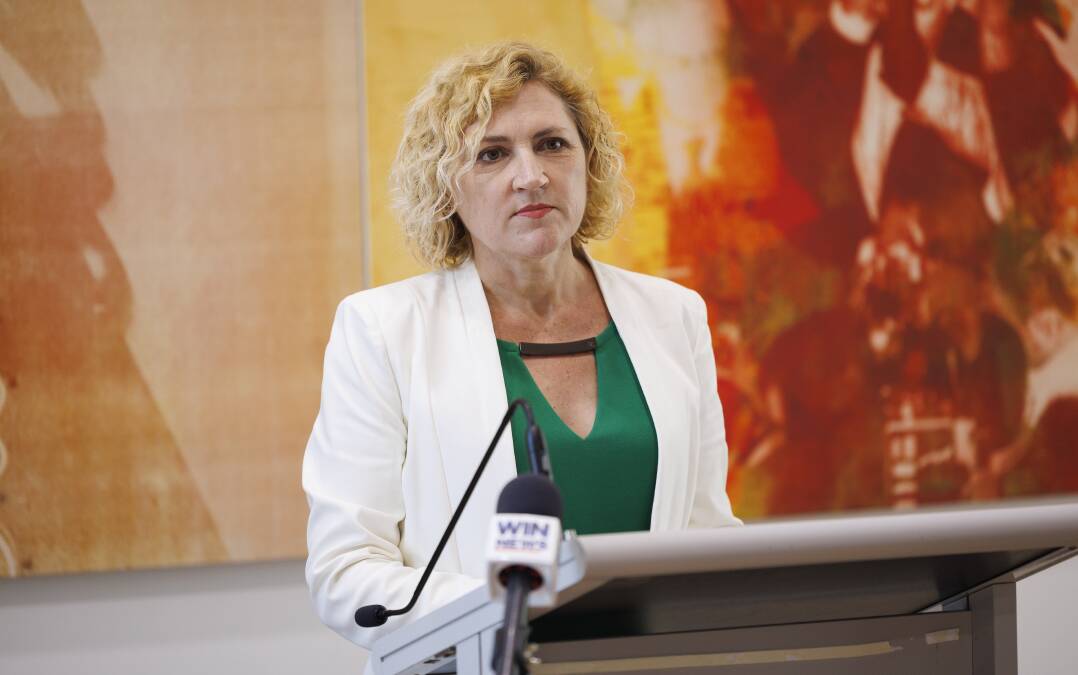ACT Population Health Minister Emma Davidson refused to sign a letter to schools about the issue of vaping among young people.
Ms Davidson has also hit out at a "flawed prohibitionist policy" being pursued by Labor in relation to vaping.
The Greens minister said she did not put her name to the letter because it failed to address how young people already addicted to vaping could seek support.
The letter was sent to principals last month and co-signed by federal Health Minister Mark Butler, federal Education Minister Jason Clare and ACT Education Minister Yvette Berry.
A similar letter was sent to schools across Australia and co-signed by state and territory health and education ministers.
The letter provided information about what the federal and ACT governments were doing to tackle vaping and also spoke about the Commonwealth's import ban on vapes.
It gave advice on what schools could do to educate about the dangers of vaping and to direct students to Quitline if they needed help.
Information was also given about the ACT having developed curriculum resources and professional learning for teachers about vaping.
"Statistics show that one in seven 14- to 17-year-olds and one in five 18- to 24-year-olds vape regularly, putting their brain development and future health at risk," the letter said.
"In addition, young vapers are three times more likely to take up tobacco smoking, perpetuating a cycle of addiction.
"That's why we are proudly partnering across federal, state and territory governments on urgent action to stop vapes getting into the hands of students, and to support them to quit vaping."

Ms Davidson said the letter did not address how young people who had already developed a nicotine addiction through vaping could be supported.
"This letter is largely talking about discouraging young people from taking up vaping in the first place so that's important, people need to be given useful information about the health risks of the things they might be thinking about doing but there's already a whole lot of young people out there that are already vaping," she told The Canberra Times.
"We know this. Everyone's talking about the fact that young people are doing this. If we're thinking that sending a letter to school principals encouraging them to say, 'Kids don't do this' is going to be enough, we're really not thinking this through."
Ms Davidson said the Commonwealth's tighter regulations and bans on the importation and non-therapeutic sale of nicotine-containing vapes needed to be combined with harm-reduction measures.
Young people were particularly vulnerable, she said, because they were not unable to access vapes legally. Adults are able to access e-cigarettes through a prescription.
"It doesn't leave us with enough support options for young people and the only thing it does do is effectively criminalise them for using a product that they don't have a prescription for and can't legally get a prescription for," Ms Davidson said.
"There isn't going to be enough alternative support out there."
Ms Davidson is working on laws to remove penalties for the personal possession of single-use, nicotine-containing vapes.

The penalties for vaping are not enforced in the territory and only exist because liquid nicotine is classed as a scheduled poison by the Therapeutic Goods Administration and possessing such a substance attracts the $32,000 fine.
Ms Davidson posted a video on social media this week accusing Labor of pursuing a "flawed prohibitionist policy". The video was shared by pro-vaping groups.
Labor backbencher Michael Pettersson, who is the party's spokesman on population health, said actions such as this were undermining to the territory, which he described as being "a leader on public health matters".
"I am concerned that minister Davidson is not committed to all three pillars of harm reduction, and she appears to be unable to separate her own political ideology from her responsibilities as a minister in the ACT government," she said.
"Effective harm reduction requires a balanced implementation of policies across all three pillars of harm reduction - demand reduction, supply reduction and harm reduction. Unfortunately, minister Davidson has been unclear on her support for supply reduction."
Ms Davidson became the Population Health Minister following a cabinet reshuffle in December.
The newly created ministry, which previously sat under Health Minister Rachel Stephen-Smith, oversees preventative health, alcohol and other drug programs, blood-borne viruses and e-cigarettes.







